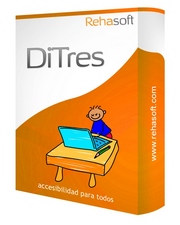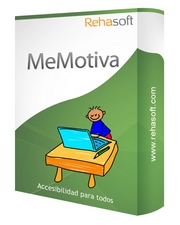Dyslexia definition
Dyslexia is a specific learning disability that is neurological in origin. It is characterized by difficulties with accurate and/or fluent word recognition and by poor spelling and decoding abilities. These difficulties typically result from a deficit in the phonological component of language that is often unexpected in relation to other cognitive abilities and the provision of effective classroom instruction. Secondary consequences may include problems in reading comprehension and reduced reading experience that can impede the growth of vocabulary and background knowledge.
Definition of Dyslexia according to The International Dyslexia Association
What is dyslexia?
Dyslexia is a language-based learning disability. Dyslexia refers to a cluster of symptoms, which result in people having difficulties with specific language skills, particularly reading. Students with dyslexia usually experience difficulties with other language skills such as spelling, writing, and pronouncing words. Dyslexia affects individuals throughout their lives; however, its impact can change at different stages in a person’s life. It is referred to as a learning disability because dyslexia can make it very difficult for a student to succeed academically in the typical instructional environment, and in its more severe forms, will qualify a student for special education, special accommodations, or extra support services.
What causes dyslexia?
The exact causes of dyslexia are still not completely clear, but anatomical and brain imagery studies show differences in the way the brain of a dyslexic person develops and functions. Moreover, most people with dyslexia have been found to have problems with identifying the separate speech sounds within a word and/or learning how letters represent those sounds, a key factor in their reading difficulties. Dyslexia is not due to either lack of intelligence or desire to learn; with appropriate teaching methods, dyslexics can learn successfully.
Dyslexia occurs in people of all backgrounds and intellectual levels. People who are very bright can be dyslexic. They are often capable or even gifted in areas that do not require strong language skills, such as art, computer science, design, drama, electronics, math, mechanics, music, physics, sales, and sports. In addition, dyslexia runs in families; dyslexic parents are very likely to have children who are dyslexic. Some people are identified as dyslexic early in their lives, but for others, their dyslexia goes unidentified until they get older.
What are the effects of dyslexia?
The impact that dyslexia has is different for each person and depends on the severity of the condition and the effectiveness of instruction or remediation. The core difficulty is with word recognition and reading fluency, spelling, and writing. Some dyslexics manage to learn early reading and spelling tasks, especially with excellent instruction, but later experience their most debilitating problems when more complex language skills are required, such as grammar, understanding textbook material, and writing essays. People with dyslexia can also have problems with spoken language, even after they have been exposed to good language models in their homes and good language instruction in school. They may find it difficult to express themselves clearly, or to fully comprehend what others mean when they speak. Such language problems are often difficult to recognize, but they can lead to major problems in school, in the workplace, and in relating to other people. The effects of dyslexia reach well beyond the classroom. Dyslexia can also affect a person’s self-image. Students with dyslexia often end up feeling “dumb” and less capable than they actually are. After experiencing a great deal of stress due to academic problems, a student may become discouraged about continuing in school.
What are the signs of dyslexia?
- Learning to speak
- Learning letters and their sounds
- Organizing written and spoken language
- Memorizing number facts
- Reading quickly enough to comprehend
- Persisting with and comprehending longer reading assignments
- Spelling
- Learning a foreign language
- Correctly doing math operations







